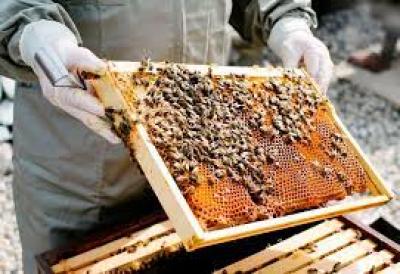
Thursday, 20 May 2021: Since time immemorial, bee have been among the hardest working creatures on the planet and they have benefited people, plants, and the environment. By carrying pollen from one flower to another, bees and other pollinators enable not only the production of an abundance of fruits, nuts and seeds, but also more variety and better quality, contributing to food security and nutrition.
However, very recently, bees and other pollinators, such as butterflies, bats and hummingbirds, have increasingly come under threat from human activities which has led to the designation of May 20 by the United Nations, (UN), as World Bee Day. The day is set aside to raise awareness on the essential role bees and other pollinators play in keeping people and the planet healthy, and to x-ray the many challenges they face today.
CEOAFRICA examines the importance of the day in relation to the challenges and impacts of these petite but crucial creatures in the sustainability of our world.
World Bee Day was the result of a proposal set forth by the Republic of Slovenia, with the support of the International Federation of Beekeepers’ Associations and the Food and Agriculture Organization of the UN (FAO). This recommendation was ultimately ratified by the UN General Assembly in 2017.
World Bee Day also corresponds with an important influencer in the pioneering of beekeeping. The date for this observance was chosen as it was the birth day of Anton Janša, a pioneer of modern apiculture. Born 20 May 1734, Janša came from a family of beekeepers in Slovenia, where beekeeping is an important agricultural activity with a long-standing tradition. He was one of the first people to emphasise the importance of bees in the world environment.
According to the UN, “Pollination is a fundamental process for the survival of our ecosystems. Nearly 90% of the world’s wild flowering plant species depend, entirely, or at least in part, on animal pollination, along with more than 75% of the world’s food crops and 35% of global agricultural land. Not only do pollinators contribute directly to food security, they are also key to conserving biodiversity.
“Pollinators such as bees, birds and bats, affect 35 percent of the world's crop production, increasing outputs of 87 of the leading food crops worldwide, plus many plant-derived medicines. Three out of four crops across the globe producing fruits or seeds for human use as food depend, at least in part, on pollinators.
“However, bees are currently under threat. Present species extinction rates are 100 to 1,000 times higher than normal due to human impacts. Close to 35 percent of invertebrate pollinators, particularly bees and butterflies, and about 17 percent of vertebrate pollinators, such as bats, face extinction globally.”
If this trend continues, nutritious crops, such as fruits, nuts and many vegetable crops will be substituted increasingly by staple crops like rice, corn and potatoes, eventually resulting in an imbalanced diet.
Intensive farming practices, land-use change, mono-cropping, pesticides and higher temperatures associated with climate change all pose problems for bee populations and, by extension, the quality of food we grow.
It is in relation to this backdrop that the World Bee Day assumes alarming significance.
Celebrated for the first time in 2018, the 2021 edition of World Bee Day marks its fourth observance.
This year’s commemoration has been themed “Bee engaged – Build Back Better for Bees” and it will feature virtual events organized by the FAO. The focus is on the need for global cooperation and solidarity in countering the threats posed by the COVID-19 pandemic to food security and agricultural livelihoods alongside prioritizing environmental regeneration and pollinator protection.
It is an occasion to raise awareness of how everyone can make a difference to support, restore and enhance the role of pollinators.
The roles of bees in agricultural and economic development cannot be overemphasised. Bees not only provide invaluable services as well as monetary advantages through pollination of wildflowers and agricultural crops, they also contribute to the economy through honey.
Honey is the most beneficial and economically important hive product. It is a rich source of food which possesses multifarious health benefits. It has been used in medicine for over 5,000 years. Honey was a mainstay in the medical practices of many cultures for centuries as it is believed to possess wound-healing properties and antibacterial ingredients.
The beneficial properties of honey have been explored and studied in modern times, and there is evidence to suggest that some parts of its historical reputation may hold truth.
Honey production has also been touted as having the potential to provide employment and reduce poverty among people.
Beeswax is the second important hive product. Beeswax is popular for making candles, wood and leather polishes. The pharmaceutical industry uses the substance as a time-release mechanism, drug carrier, and binding agent. It has also been widely utilised in cosmetics.
Finally, the importance of bees for honey production, wax and pollination is of utmost importance for food, medicine, and economic benefits in agriculture. Today, more than 90 percent of crops rely on honey bees for pollination.
Hence, it is time to re-think how we relate to nature and pollinators and what actions we can take to support these tiny hard workers and the millions of livelihoods then, in turn, support.






















